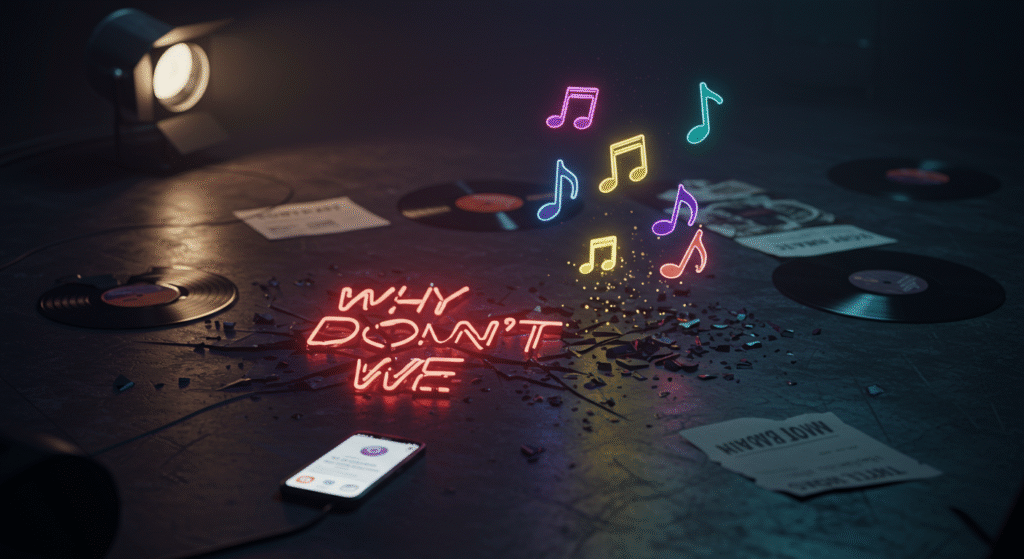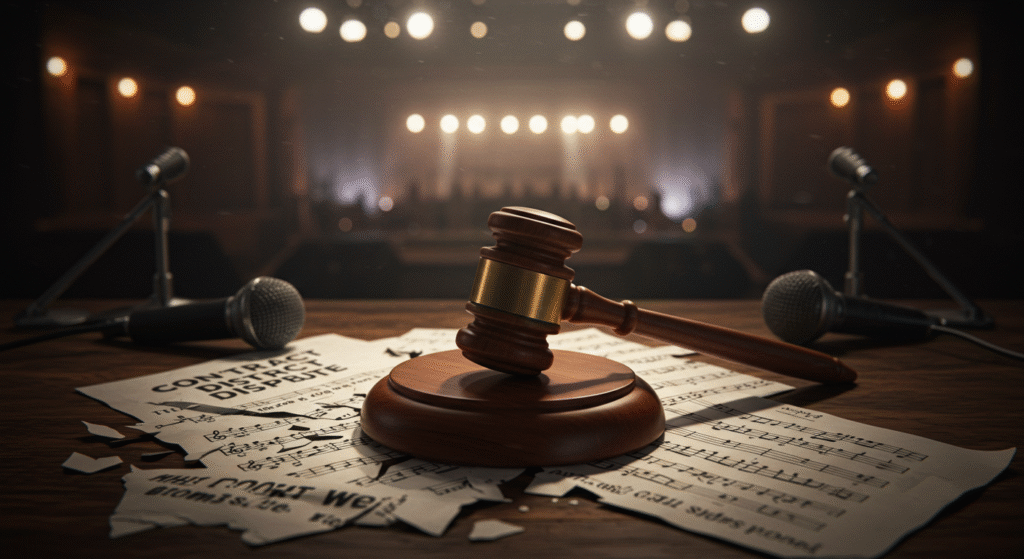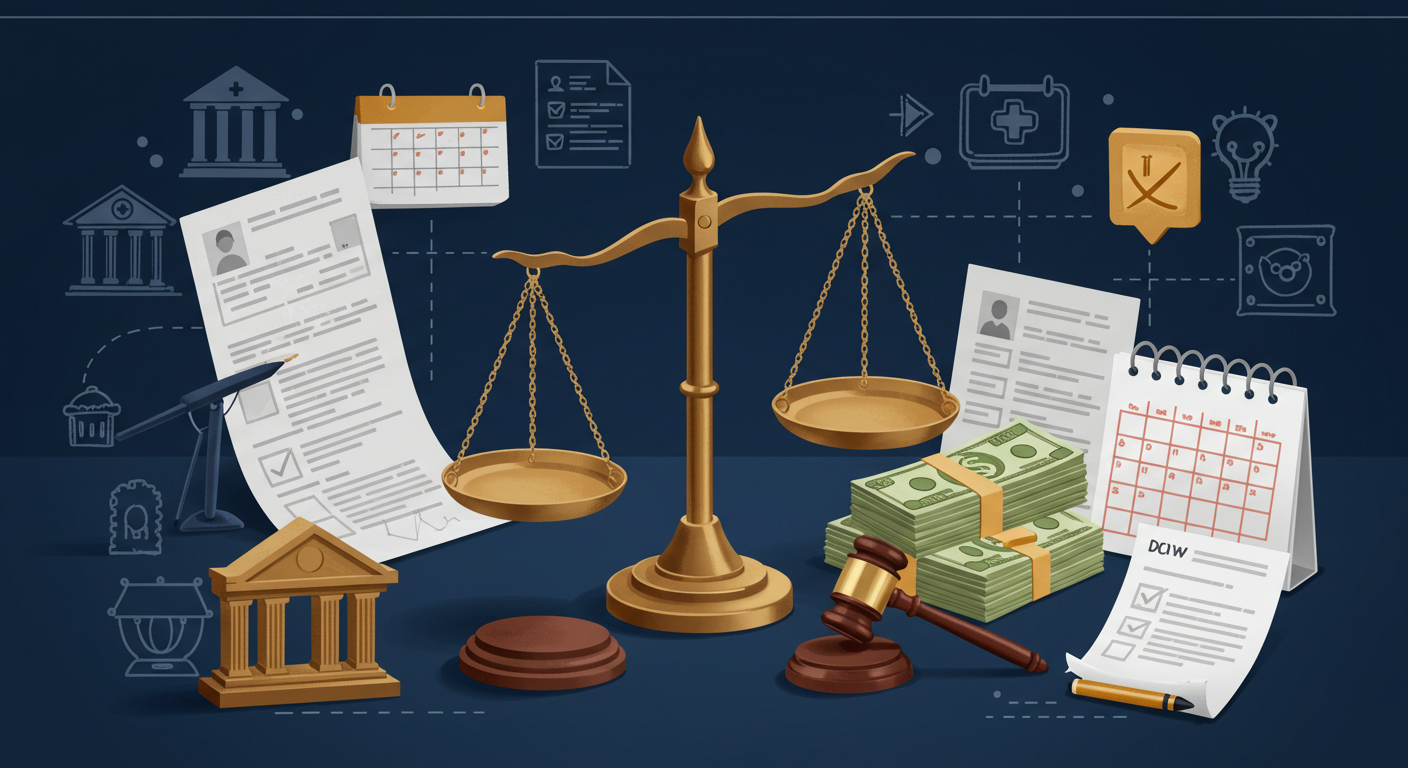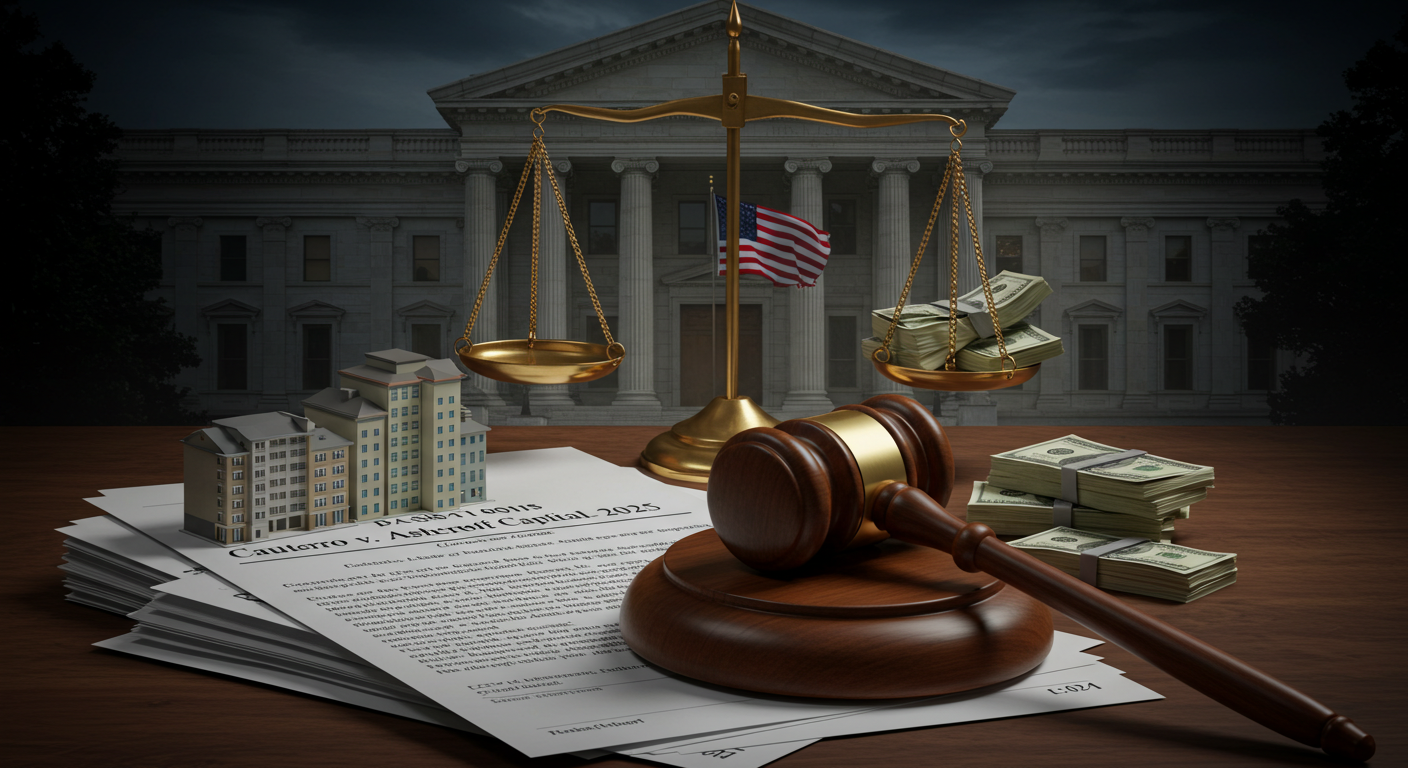Introduction
Pop music is full of exciting bands, but some stories end sadly. Why Don’t We, a popular American boy band, faced a tough ending. They became famous in the late 2010s with fun songs and loving fans. They made great music, traveled the world, and had big dreams. But then, a big fight with their managers changed everything.
This fight, called a lawsuit, lasted four years. It started because the band said their managers treated them badly and made unfair deals. It ended in February 2025 with a mixed decision, meaning both sides won and lost something. The worst part? The band could no longer use their name, “Why Don’t We.” This took away their identity and ended the band. Fans were very surprised. How could a name be so important but taken away so easily?
I’m Orland Howell. I’ve spent four years writing about lawsuits and legal stuff in a way that’s easy to understand. In this article, we tell the whole story. We explain who the band is, what happened, and what the 2025 decision means. I’ve written about many music lawsuits, so I know these cases can hurt dreams and careers. This one shows how young singers can get into trouble with bad contracts.
Who Are Why Don’t We?
Why Don’t We, or WDW, started in 2016. Five young guys formed the band: Jack Avery, Corbyn Besson, Zach Herron, Jonah Marais, and Daniel Seavey. Each had a special skill. Jack sang with lots of feeling. Corbyn wrote words that fans loved. Zach was full of energy on stage. Jonah played guitar well. Daniel could play over 20 instruments just by listening.
They met online and soon joined a music company. Their first album, Only Want You, came out in 2016 and was liked. Their second album, Something Different, in 2017, made them really famous. The song “Something Different” was a big hit on YouTube. Fans loved their mix of pop, R&B, and happy sounds.
By 2018, they had huge songs. “In My Feelings” and “8 Letters” were loved by many. Their album 8 Letters sold a lot. They traveled to North America and Europe for concerts, and all tickets sold out. Their fans, called “Limelights,” went far to see them. They even worked with famous people like Logan Paul on videos.
Life looked great. They were young teens becoming stars. But behind the scenes, trouble was growing. Their managers promised fame but controlled too much. This caused the big fight that changed everything.
Early Success and Secret Problems
In their first years, Why Don’t We did very well. They joined Atlantic Records in 2017. Albums like Invitation and A Why Don’t We Christmas made fans happy. Their “Invitation Tour” had full concert halls. They were in movies and videos, reaching more people.
But fame can be hard. The band was young, mostly 16 to 18 years old when they started. Managers like David Loeffler from Signature Entertainment helped them. Loeffler, who was in a boy band in the 1990s, knew the music world. He started Signature with Randy Phillips. They took care of tours, deals, and money.
At first, it was good. The band lived together in a rented house to make music. But soon, the managers controlled too much. People said Loeffler shouted a lot. He made them share small rooms, even when there was more space. Arguments lasted 10 to 20 minutes. The band felt stuck.
Money problems made things worse. The band made money from music, but managers took big parts of it. Daniel Seavey wanted credit for songs he made. He asked for fair pay, but talks went badly. Their dream job turned into a bad time.
By 2021, problems showed up. The band canceled concerts and talked about taking breaks. Fans got worried. They didn’t know a huge fight was coming.
The Fight Starts: Claims of Bad Treatment
The trouble began in 2021. Why Don’t We spoke up. They said their managers hurt them with bad treatment and unfair money deals. David Loeffler was the main person they blamed. They said he acted in a scary way, shouting and controlling them too much.
Daniel Seavey started the fight. He took Signature Entertainment to court for breaking their contract, lying, and not acting in the band’s best interest. This is called breaking fiduciary duty, which means managers must help the band, not hurt them. Daniel said they didn’t. Later, the other four members—Zach, Corbyn, Jonah, and Jack—joined the fight. They said Loeffler was too controlling.
Signature fought back. They took the four members—Zach, Corbyn, Jonah, and Jack—to court for breaking their contract. They said the band owed $50 million, a huge amount for young people. Signature also said the band lied about being treated badly, which hurt their reputation.
Daniel’s case was different. He filed for bankruptcy in 2022, which ended his contract early. But he still spoke in court. Randy Phillips, his new manager and a Signature co-founder, was also part of the case. The fight got very messy with everyone blaming each other.
The lawsuit stopped everything. In 2022, the band canceled their “Good Times Only Tour” and said they were taking a break. Fans were sad and showed support online. The legal fight went on for years, costing a lot of time and money.
Waiting for the Trial: Long Delays
From 2021 to 2025, the case had many ups and downs. Lawyers sent lots of papers back and forth. They argued about proof like emails, texts, and bank records. The band said managers hid money. Signature said the band lied to get out of their contract.
In 2023, things got worse. Daniel Seavey canceled his own tour because of stress. Other members tried making their own music but didn’t do much. Fans waited for news, and some thought the band was breaking up.
By 2024, a trial was set for February 2025 in Orlando, Florida. The band went there. Zach Herron shared on social media, saying, “Trial day.” Everyone was nervous.
The trial took several days. People told their stories in court. Daniel talked about making songs without getting credit. Loeffler said he didn’t treat them badly. Phillips answered questions about his part. The jury, made of regular people, had to decide who was telling the truth.
The 2025 Decision: Wins, Losses, and No Name
On February 27, 2025, the jury made their decision. It was mixed, meaning both sides got something and lost something.
First, the contract problem. Signature wanted $50 million from Zach, Corbyn, Jonah, and Jack for breaking their contract. The jury said no. Each member only owed $1, so $4 total. This small amount showed they made a tiny mistake, not a big one.
The worst part came next. The contract said if the band lost on the contract issue, they lost their name. The jury agreed. Signature now owns “Why Don’t We.” The band can’t use it for music, tours, or anything else. They also lost the names of their albums and tours.
For the claim about lying, the band lost. They couldn’t prove Loeffler treated them badly. They had to pay Signature $400,000. But the jury also said Signature didn’t act in the band’s best interest. Signature owed the band $400,000, so the money canceled out.
Randy Phillips got the biggest punishment. The jury said he messed up business deals and must pay $3 million to Signature’s partners. He plans to fight this in court again.
The band’s lawyer, Howard King, said they might try to change the decision. Signature’s lawyer, Michael Levin, said the band’s claims were not true. Both sides were upset, but the name loss stayed for now.
What the Decision Means for the Band

The decision was hard. The members called themselves “Formerly known as Why Don’t We” in a statement. They wrote on Instagram, “This lawsuit is finally over. We’re excited to move on and work on our own music.”
Daniel Seavey was very sad. He said, “This is not a win.” He worried about their songs being used by others. But he released his album Second Wind in March 2025, with songs like “Other People” showing his skill.
Jonah Marais made a mixtape in 2024 and an EP, More Than Enough, in May 2025. Corbyn Besson worked with K-pop star Tzuyu on a song called “Blink” in September 2025. Jack Avery and Zach Herron are making their own music too.
Losing their name makes things harder. Fans know them as WDW. Starting over means making new logos, websites, and excitement. But their talent is still there. Phillips said, “The band will be okay with money. Young singers should be careful with contracts.”
Lessons from the Case
This case teaches the music world a lot.
- Contracts are important. Young singers sign fast for fame. But words like “ownership” can cause trouble. Managers often own band names. Breaking a contract can mean losing it all.
- Speaking up can be risky. The band was brave to talk about bad treatment. But if they can’t prove it, they can get in trouble for lying. Juries need strong proof like emails.
- Managers must be fair. They should help singers, not just make money. The $400,000 win shows bands can fight back if managers do wrong.
I’ve written about many lawsuits, and this is like cases such as Kesha’s against Dr. Luke. Young singers can be hurt by unfair deals. Bands should get lawyers early, read every word, and ask questions.
Fans feel sad seeing their favorite band struggle. But this leads to change. More singers now check contracts carefully.
The Future: New Music and Possible Changes
The members are now making music on their own. Daniel Seavey tours with new sounds. Jonah Marais mixes pop with personal stories. Corbyn Besson works with singers from other countries. Jack Avery and Zach Herron are creating quietly.
They might try to change the court’s decision. If they win, they could get their name back. For now, Signature owns it and might use old songs or tours. This could cause problems with the members’ new music.
Fans are getting used to this. They listen to old songs and support new ones. Why Don’t We’s music lives on, even without the name.
Conclusion
The Why Don’t We lawsuit shows fame can be tricky. The 2025 decision ended the band but let them start new paths. They lost their name but kept their talent. As Orland Howell, I’ve seen how lawsuits change lives. This one says: Follow your dreams, but protect yourself. The story isn’t done. Watch these five singers. They will shine again, with or without their name.
Disclaimer
This article is for informational purposes only and does not constitute legal advice. The information provided is based on publicly available sources and reflects the status of the Why Don’t We lawsuit as of February 2025. Legal outcomes may change due to appeals or new developments. For advice specific to your situation, consult a qualified attorney.
Explore More:
Quaker Oats Lawsuit 2025 — $6.75 Million Deal, Recalled Products, and How to Get Your Money
Tampax Lawsuit: Lead, PFAS, and Consumer Claims — 2025 Investigation and What It Means for You
Cierra Mist Lawsuit: The Real Story Behind the Viral Name Fight and PepsiCo’s Records

Orland Howell is a seasoned content writer with four years of deep expertise in crafting compelling and informative content about lawsuit settlements. With a keen understanding of legal nuances and a talent for translating complex topics into clear, engaging narratives, Orland helps law firms, legal professionals, and clients communicate effectively. His work spans blog posts, articles, whitepapers, and website content, all designed to educate, inform, and drive results. Passionate about empowering audiences with knowledge, Orland combines precision, creativity, and industry insight to deliver content that resonates and builds trust.






